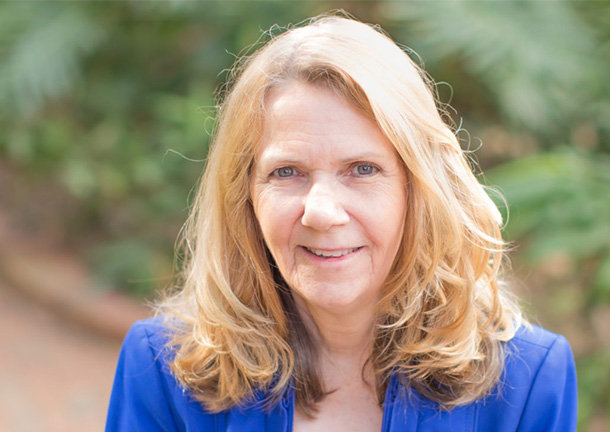Diana Joyce-Beaulieu
Scholar, Psychologist
About
Dr. Joyce-Beaulieu's research interests and publications include applications of cognitive-behavioral therapy in providing intensive-level intervention for school-age and postsecondary student mental health needs. She has authored three books on this topic and also served as co-principal investigator on a professional development grant investigating Response-to-Intervention (RtI) and Multi-tiered Systems of Support (MTSS) methods of school-based intervention delivery for child/adolescent social-emotional and mental health needs.
Affiliations
- School of Special Education School Psychology and Early Childhood Studies
Research Interests
Assessment and Evaluation, Behavior, Behavior Management, Education Types, Emotion, Gifted Education, Psychological Studies, School Psychology, Special Education
Education
- Ph.D. - University of Florida, Educational Psychology
- Ed.S. - University of Florida, Educational Psychology
- M.A. - University of Florida, Educational Psychology
- B.A. - University of Florida, Psychology
Professional Appointments
- Scholar, University of Florida, School of Special Education, School Psychology, and Early Childhood Studies
- Licensed Psychologist PY6872, State of Florida
- School Psychologist, National Certification (NCSP)
- Faculty-in-Residence/Psychologist, P.K.Yonge Developmental Research School
- American Psychological Association Accreditation Site Visit Chair
- Florida Association of School Psychologists, Training and Credentialing Chair
Activities and Honors
- 2016 Rosser Educator Excellence Award
- 2008 College of Education, Scholarship of Engagement Award
- 2007 Junior Faculty of the Year Award-Development Scholarship. Psychological Corporation
Selected Publications
- Joyce-Beaulieu, D., & Zaboski, B. (in press). Applied cognitive behavioral therapy in schools. New York, NY: Oxford University Press.
- Joyce-Beaulieu, D., & Sulkowski, M. (2020). Cognitive behavioral therapy in K-12 school settings: A practitioner's toolkit (2nd ed.). New York, NY: Springer.
- Joyce-Beaulieu, D., & Rossen, E. (2015). The school psychology practicum and internship manual. New York, NY: Springer.
- Joyce-Beaulieu, D., & Sulkowski, M. (2015). Cognitive behavioral therapy in K-12 school settings: A practitioner's toolkit. New York, NY: Springer.
- Joyce-Beaulieu, D., & Zaboski, B. (in press). Raising the emotional wellbeing of students with anxiety and depression. In P. Lazarus, S. Suldo, & B. Doll (Eds.), Fostering the emotional well-being of our youth: A school-based approach. New York, NY: Oxford University Press.
- Joyce-Beaulieu, D., & Dixon, A. R. (2018). Planning for a career in school psychology. In S. L. Grapin & J. H. Kranzler (Eds.), School psychology: Professional issues and practices (pp. 233-249). New York, NY: Springer.
- Joyce-Beaulieu, D., & Callueng, C., M. (2016). Special populations: Children and adolescents. In F. T. L. Leong, D. Bartram, F. Cheung, K. F. Geisinger, & D. Illiescu (Eds.). The ITC handbook of testing and assessment (pp. 276-289). New York, NY: Oxford University Press.
- Joyce-Beaulieu, D., & Sulkowski, M. (2016). The diagnostic and statistical manual of mental disorders: Fifth edition (DSM-5) model of impairment. In S. Goldstein, & J. A. Naglieri (Eds.), Assessing impairment (2nd ed., pp. 167-189). New York, NY: Springer Science+Business Media LLC. ISBN 978-1-4899-7996-4
- Schrack, A., Joyce-Beaulieu, D., MacInnes, J. W., Kranzler, J., Zaboski, B. A. & McNamara, J. P. H. (in press). Intelligence and academic achievement in inpatient adolescents with comorbid anxiety and depression. The Bulletin of the Menninger Clinic.
- Zaboski, B. A., Joyce-Beaulieu, D., Kranzler, J. H., McNamara, J. P., Gayle, C., & MacInnes, J. (2019). Group exposure and response prevention for college students with social anxiety: A randomized clinical trial. Journal of Clinical Psychology, 1-19. doi: 10.1002/jclp.22792


